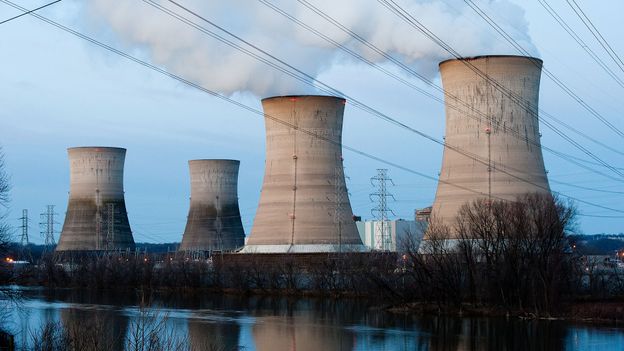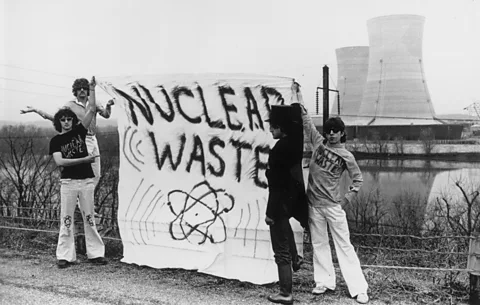
Why big tech’s nuclear plans could blow up
A report released in April by the International Energy Agency noted that the power demand from data centres, which currently account for around 1.5% of the world’s electricity consumption, could double in the next five years. Beyond that, there’s huge uncertainty – both in the amount of future demand and what sources might rise to meet it.
Nuclear reactors, Raza and other experts say, may have a role in meeting the AI energy crunch, but only years into the future – and only if the industry can convince an often-sceptical public.
 Keystone/ Hulton Archive/ Getty Images
Keystone/ Hulton Archive/ Getty ImagesIn March, the small suburb of North Tonawanda, halfway between Niagara Falls and the rust-belt city of Buffalo in Western New York state, took what to outsiders looked like a fairly drastic step – banning nuclear power generation within its borders.
The law was a direct reaction to anger over a proposal floated by a local tech company to build a small reactor for cryptocurrency mining. Deb Gondek, a local activist who prior to retirement had worked as director of sustainability for a food company based in the area, said that many residents were wary of the proposal because they’d already been upset by the noise of the crypto mining operation.
First Appeared on
Source link






